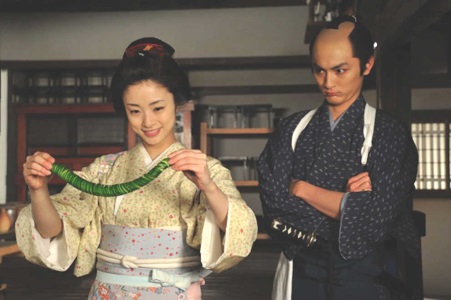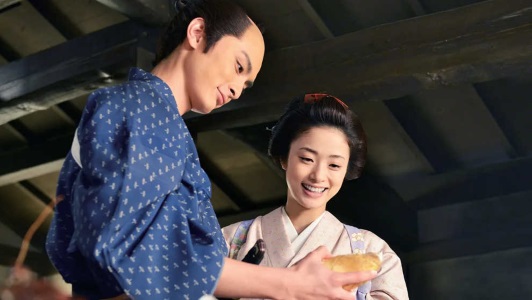A Tale of Samurai Cooking
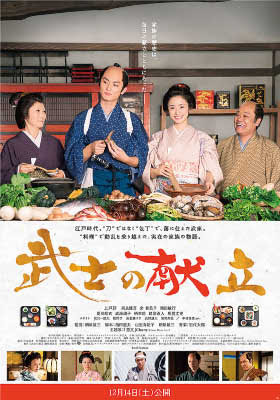
Director: Yuzo
Asahara
Year: 2013
Rating: 7.5
"Dried fish with tamari
soy sauce. This is dried Yellowtail, sliced and boiled in sake. The stock
is kelp and sweet sake. The soy is a light sauce from around Tatsuno."
For those who are foodies with a particular
appreciation for Japanese cuisine this is a delight. Just be sure to have
some sake and sushi on hand when you watch it. I admit to being very rudimentary
in my exploration of Japanese food - keep it to curries, yakitori, Kobe beef
and teriyaki. As this film makes clear, I am barely putting my toe in. When
I go to a Japanese restaurant, I don't even know what most of the items are.
There is a plethora of food to savor and appreciate the visual aesthetics
of in the film. But there is a story as well. Love, honor, tradition. Very
mainstream and for the general public - nothing violent, weird or sexual
- just a wholesome film that gave me a bit of joy. It takes place in the
Edo period (1603 - 1868) in Japan but probably at a time when the Samurai
were beginning to lose their value as Japan was a unified country at peace.
This led to the Ronins when their Masters could no longer afford them or
had no need for them. So, many Samurai turned away from the Warrior class
and took on other duties that were needed such as accountants, managers and
in this case cooks.
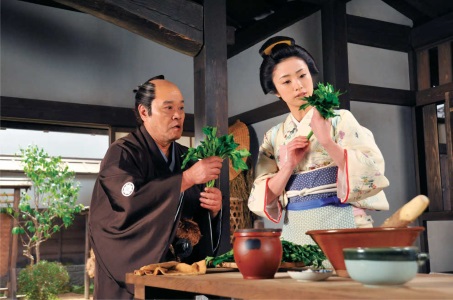
The above quote occurs when the Lord of
Kaga is being feted in his honor. The cook Dennai Funaki (veteran Toshiyuki
Nishida) brings out a special dish and questions the gathering as to what
it is. One says crane, another tofu, another venison. Then Lady Tei of Kaga
(Yui Natsukawa) announces that her maid Haru knows. Haru had worked at her
parent's restaurant till it burnt down killing her mother and father and
leaving her an orphan. Lady Tei hired her and arranged a marriage to a good
family - but in less than a year she was sent back like a piece of lost luggage
- for being impertinent. Thus, she is surprised when Funaki comes to her
and begs her to marry his son Yasunobo (Kengo Kôra) but she initially
refuses till he pleads - my eldest son who was being trained to take over
for me died and now it is up to my second son. But he knows nothing and is
incompetent. He wants to be a warrior and looks down on Kitchen Samurai.
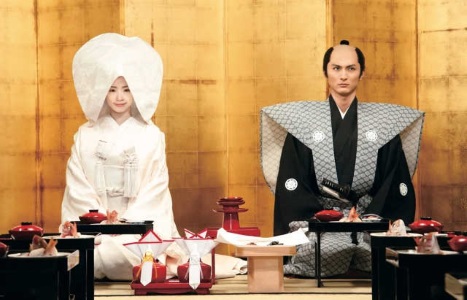
She relents and gets married to a man who
doesn't want her or anything to do with cooking. But the pride of the family
depends on him. And Haru. It goes sort of where you expect it to and want
it to but not exactly as Yasunobo gets involved with a group of young samurai
who plan an assassination of the Lord in order to bring in reforms. Que drama.
Haru is quite wonderful in this and will win you over in minutes. Not Yasunobo
though. In this film she is slicing up beets and chickens - in the film Azumi
she (Aya Ueto) sliced up hundreds of warriors. I like her in both.
The song during the end credits is the great
CHARA. Directed by Yûzô Asahara (Tora-san, Welcome Back)




